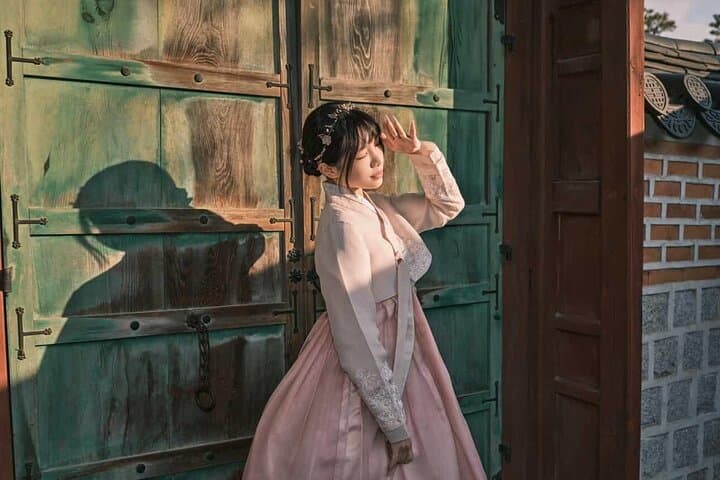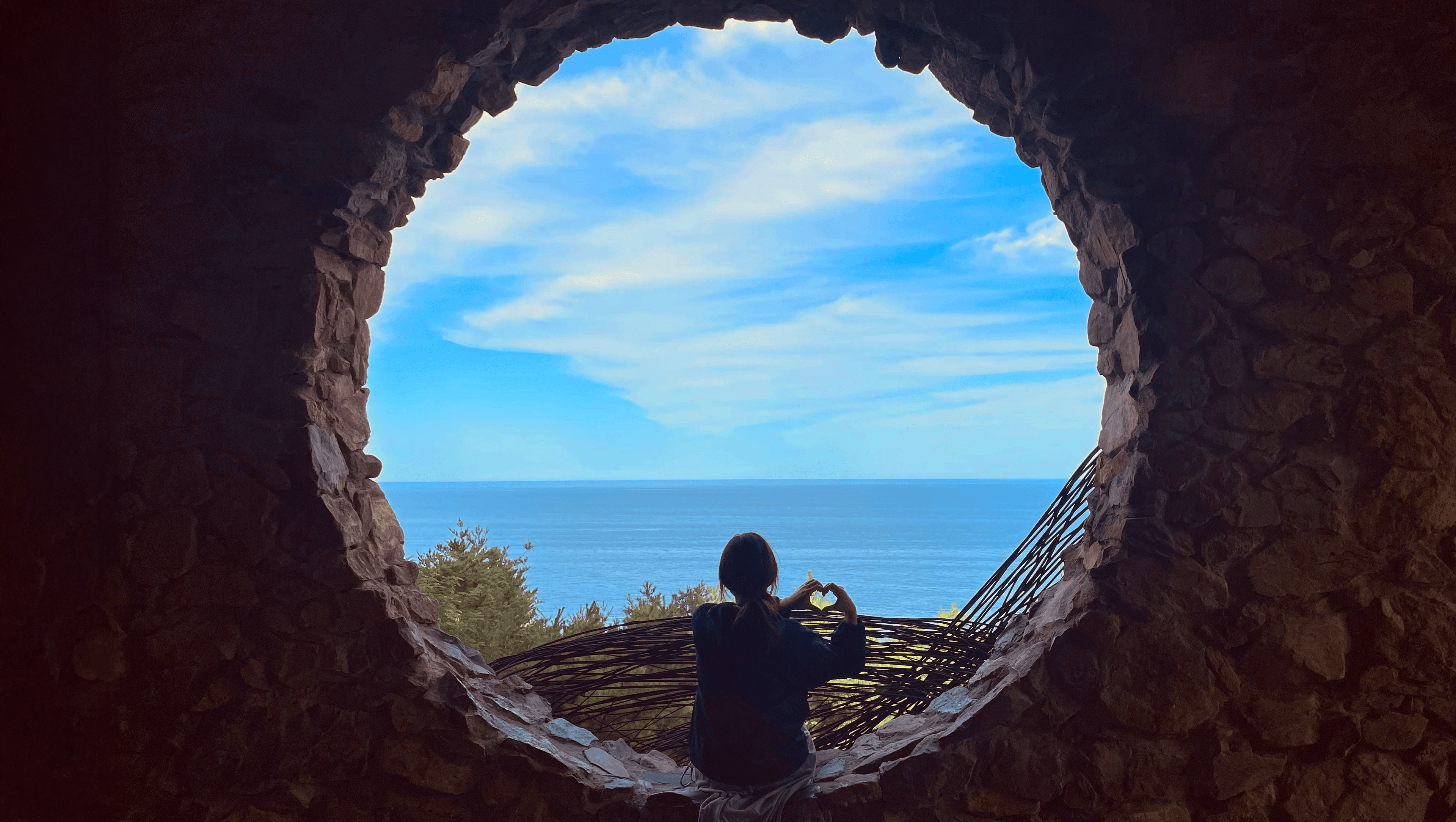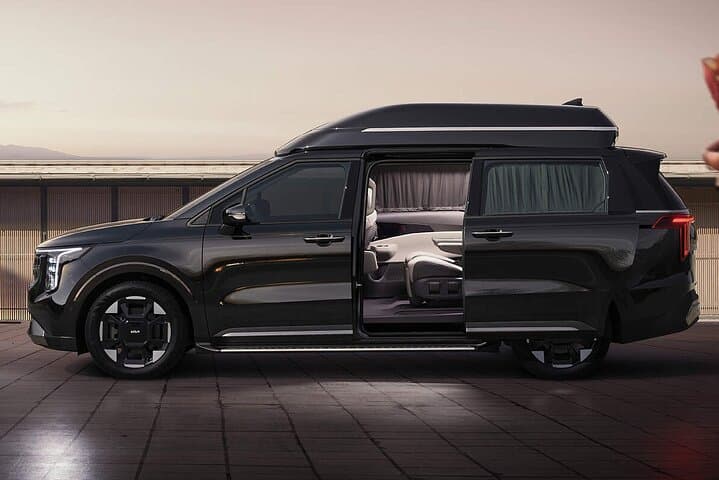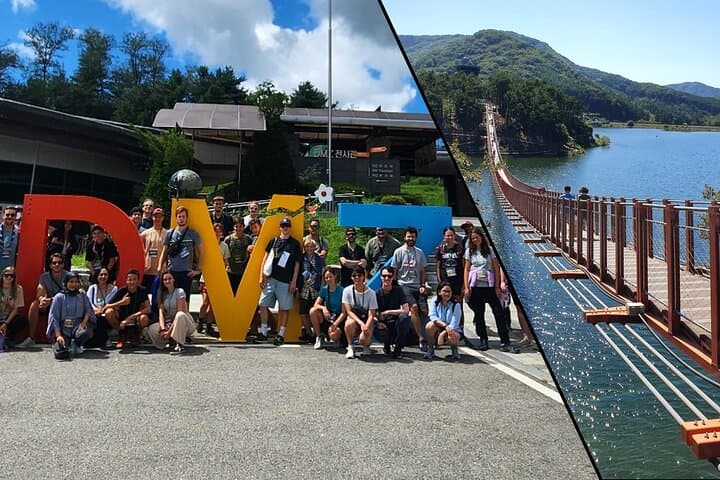Seoul in 3 Days for Photographers - Ginkgo-lined avenues in Sinsa & Deoksugung
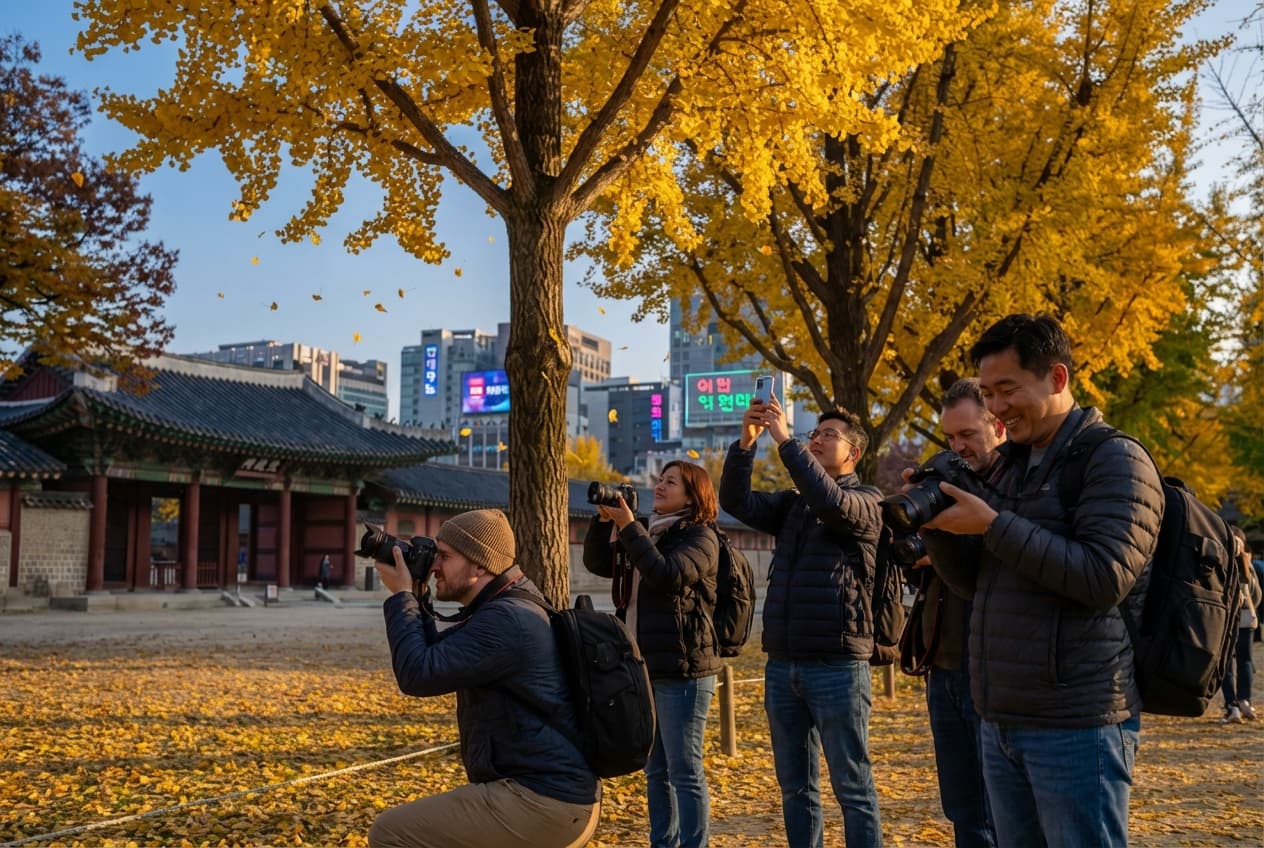
A cinematic, curiosity-driven 3-day photo plan for November in Seoul. Balances iconic autumn ginkgo scenes and neon-lit nightscapes with local favorites and flexible timing for spontaneous shoots. Timings emphasize golden-hour and blue-hour windows; tips include tripod notes, crowd-avoidance, and permit pointers.
Highlights
- Ginkgo-lined avenues in Sinsa & Deoksugung
- Golden-hour palace vistas at Gyeongbokgung
- Riverside long-exposures at Banpo Bridge
- Neon architecture at Dongdaemun Design Plaza
- Hidden hanok alleys in Ikseon-dong and Bukchon
Itinerary
Day 1
Classic central Seoul — stonewall ginkgo lanes, hanok alleys, palace golden hour, and a neon DDP night session. Designed to minimize peak crowds and maximize golden-hour palace light.
Morning coffee & prep — Café Onion Anguk
Light breakfast and scouting over a photogenic industrial hanok cafe to warm up lenses and batteries.
Tips from local experts:
- Sit by the window for soft morning side-light — plants can add foreground interest.
- Ask staff subtly where the quietest seating is; tables near the counter have cleaner backgrounds.
- Tripods: compact tabletop tripod only inside; use hand-held until outside to respect other guests.
Deoksugung Stonewall Walk & Seoul Plaza — ginkgo-lined approach
A gentle morning stroll along the stonewall walkway and Seoul Plaza where late autumn ginkgo leaves collect in golden carpets — quieter before lunch.
Tips from local experts:
- Morning is best for clean sidewalks and soft side-light; use a 35–50mm for street-portrait context and a 24mm for architecture.
- Tripods are allowed outdoors but keep to the edge of the walkway; avoid blocking pedestrian flow.
- If you want head-on ginkgo alcove shots, arrive before 10:30 to avoid tour groups and deliveries.
Bukchon Hanok Village — intimate alleyway frames
Explore narrow hanok alleys for textured portraits, roofline silhouettes, and hidden ginkgo patches between traditional houses.
Tips from local experts:
- Use a longer lens (85–135mm) to compress eaves and isolate details; low angles highlight tiled roofs against the sky.
- Respect private property: many alleys have residents; avoid intruding into doorways and ask before photographing people closely.
- Scout elevated vantage points (small guesthouse rooftops) for sweeping compositions; rooftop access may require patronizing a café or seeking permission.
Lunch near Gyeongbokgung — Tosokchon Samgyetang
Traditional ginseng chicken soup in a photogenic rustic interior — restorative and close to afternoon palace shoots.
Tips from local experts:
- Eat early to avoid the lunch rush; reserve a small table to keep gear nearby and recharge batteries.
- Interior windows produce flattering window-light for food and candid environmental portraits.
- Tripods are usually discouraged inside; use a small hand-held setup or monopod if needed.
Short transfer / walk to Gyeongbokgung (scouting route)
Walk/short transit to Gyeongbokgung — use this time to check filters, batteries, and lens choices for golden-hour palace shots.
Tips from local experts:
- Use the walk to change lenses and test exposure bracketing so you're ready when light shifts.
- Map a few palace gate positions now (Gwanghwamun and Heungnyemun) so you can reach your preferred angle quickly.
- If using public transit, keep a small backpack ready to switch between street and tripod gear quickly.
Break — quick gear check
15-minute break to rest, review shots, and recalibrate white balance before golden-hour palace session.
Tips from local experts:
- Quickly review ISO/noise results from morning shots to inform tripod vs. high-ISO choices later.
- Label SD cards by day/time to avoid mixing frames during busy edits.
- If temperatures are cold (typical November), keep spare batteries warm near your body to preserve charge.
Gyeongbokgung Palace — golden-hour architecture & shadow play
Arrive before late afternoon to position for golden-hour light on the palace roofs, courtyards, and mountain backdrop. Ideal for wide architecture, details, and guarded-robe portrait studies.
Tips from local experts:
- Golden hour in November is early — be in position by 15:30–16:00. Use graduated ND or bracket exposures to capture sky textures.
- Tripods are permitted in most outdoor palace grounds but avoid blocking gates and pathways; permits are typically not required for non-commercial shoots.
- For fewer people in frames, aim for side courtyards and use a longer lens from the outer wall; the main courtyard can be crowded near sunset.
Transfer to dinner area (walk/transit)
Short transit to a nearby dinner spot; use this window to offload select frames and swap lenses for low-light night shooting.
Tips from local experts:
- Offload key golden-hour frames to your phone or a portable drive to free cards for the night session.
- Swap to a fast prime (35/50mm f/1.4–1.8) for street and neon scenes post-dinner.
- Confirm evening meetups or permit constraints for DDP — large tripods can be cumbersome on subways at rush hour.
Dinner — local banchan and slow light (choose a small hanjeongsik restaurant)
Relaxed dinner to refuel and prep for a neon night shoot; choose a small, well-lit place to stay near public transit.
Tips from local experts:
- Choose a seat with window or overhead lighting for environmental portraits or food shots.
- Avoid peak dining crowds by booking or arriving early; evening crowds will otherwise cut into shooting time.
- Keep camera in quick-access bag to capture spontaneous street scenes after stepping outside.
Dongdaemun Design Plaza (DDP) after-dark — LED & architecture
Night-long-exposure and neon reflections on Zaha Hadid's flowing forms, with the LED rose garden and nearby streets for varied neon textures.
Tips from local experts:
- Use a solid tripod and remote release for long exposures on the reflective plaza surface; aim for blue-hour (about 17:40–18:30) into evening for saturated skies.
- For cleaner compositions, position yourself on raised walkways above the plaza to avoid crowds and include architectural curves.
- DDP is open late; tripod use is normally tolerated on the plaza but avoid obstructing pathways — commercial shoots may require permission.
Day 2
Tree-canopied Garosu-gil and Seoul Forest by day, riverside golden-hour and fountain-long exposures at Banpo Bridge, then Hongdae neon & street energy after dark.
Early morning — Sinsa Garosu-gil (ginkgo avenue)
Catch the ginkgo-lined boulevard with the crisp November light before shops and crowds open — ideal for portrait and street compositions.
Tips from local experts:
- Arrive by 07:30–08:30 for deserted streets and clean light; a 50mm or 85mm works well to isolate trees against boutique facades.
- Use low-shutter sequences to capture falling leaves; shoot burst mode for natural leaf patterns.
- Tripods are ok on sidewalks but be mindful of shop deliveries; compact tripod or beanbag on a bench can be a stealthy alternative.
Café break — light & texture scouting
Quick café stop to review shots, charge a battery, and plan Seoul Forest sequences.
Tips from local experts:
- Choose a café with outdoor seating to maintain continuity of street light scouting and for quick environmental portraits.
- Use this time to change to wider lenses if you plan forest canopy shots.
- Check weather app — November mornings can be crisp; fog can add mood but drains battery life faster.
Seoul Forest — hidden groves & golden pockets
Less-trafficked autumn groves with ponds, wooden paths, and small bridges — great for layered compositions and reflections.
Tips from local experts:
- Hunt for side ponds and reed beds for mirror reflections; a polarizer helps reduce glare while enhancing color saturation.
- Bring a mid-range zoom (24–70mm) for versatility between wide pathways and compressed portraits near trees.
- Weekdays are quieter; if visiting on a weekend, aim for the far east sections of the park where photographers usually go.
Lunch & Common Ground — container mall textures
Lunch at Common Ground, a shipping-container shopping complex with bold colors and neon accents — useful for mid-day neon practice.
Tips from local experts:
- Common Ground's vehicular ramps and rooftop offer multiple elevation points for composition variety.
- Practice high-contrast framing against colorful containers to prepare for evening neon scenes.
- Food court light is often mixed; set white balance manually to avoid green casts from fluorescent fixtures.
Transfer to Banpo Hangang Park (prepare for golden-hour)
Transit to Banpo Hangang Park, use this time to assemble tripod gear for riverside long exposures and fountain captures.
Tips from local experts:
- Plan transit to arrive 60–90 minutes before sunset to scope best vantage points along the riverbank.
- Bring neutral-density filters for daytime long-exposures and a sturdier tripod for river breezes.
- Check fountain show schedules (seasonal) — shows can shift in November; confirm local schedule if planning to photograph the rainbow fountain.
Banpo Bridge & Hangang golden-hour to blue-hour long exposures
Capture the river, bridge reflections, and (if running) Banpo Rainbow Fountain. Golden-hour light on the water and blue-hour LEDs make for dynamic skyline sequences.
Tips from local experts:
- Golden hour in November is early — be set up by 16:00 for side-lit reflections; use 16–35mm for wide river panoramas and a 70–200mm to compress bridge lights.
- If waiting for fountain shows, plan for later-night shows; blue-hour reflections combined with fountain lights create dramatic multi-exposure composites.
- Wind off the river causes motion blur — use sandbag on tripod and check remote-timer intervals for stacking exposures.
Transfer to Hongdae (evening neon) — quick gear reconfigure
Head to Hongdae; switch to fast primes for street neon, clean up memory cards, and prep low-light autofocus settings.
Tips from local experts:
- In transit, rename folders or mark favorite shots for later review; saves time if you need to free cards.
- Switch to primes (e.g., 35/50mm) for low-light handheld shots; prepare lens caps and hood to avoid flare from neon.
- Hongdae crowds peak late — plan to shoot earlier in the evening for clearer vantage points or embrace crowds for energetic street scenes.
Hongdae Neon Nightlife — murals, street performers, and neon alleys
Capture dynamic neon signage, live performers, and graffiti-lit alleys; ideal for handheld night portraits and motion studies.
Tips from local experts:
- Use higher ISOs with fast primes and embrace grain for mood; shoot RAW to recover shadows.
- Ask performers for permission for close portraits — small offerings or polite conversation often opens better compositions.
- Seek elevated crosswalks or building entries for overhead neon compositions to avoid foreground clutter.
Day 3
Sunrise panoramas from Namsan, intimate Ikseon-dong alleys, market street-food portraits, gentle stream reflections, and a high-rise dusk panorama at Lotte World Tower to finish with a neon skyline.
Namsan Park sunrise + N Seoul Tower viewpoint
Early dawn cityscape with the first light on Seoul's ridges and ginkgo pockets in Namsan Park — excellent for panoramic city shots and telephoto mountain compression.
Tips from local experts:
- Sunrise in November is early — be on the main viewpoint 20 minutes before sunrise for progressive layers of light.
- Bring a heater pack and spare batteries (cold drains batteries faster); long exposures may require very low ISO and tripod stability.
- If you want a sweep panorama, shoot multiple vertical frames and stitch in post; keep horizon level using spirit-level in-camera or tripod head.
Breakfast & camera check — Myeongdong cafés
Warm meal and quick photo review in Myeongdong; street vendors nearby offer candid portrait opportunities.
Tips from local experts:
- Myeongdong is lively; hold gear close and use a sling bag for quick exits to street scenes.
- Use the café window light for warm, natural-lit portraits and to practice custom white-balance for the day.
- If you want vendor portraits, approach politely and offer a printed photo later as a goodwill gesture.
Ikseon-dong Hanok Village — narrow hanok lanes & neon cafes
A compact hanok neighborhood mixing traditional architecture and modern neon — excellent for moody alley shots and detail studies.
Tips from local experts:
- Ikseon-dong is compact; use 24–70mm for alley scenes and 50–85mm for portraits against textured doors.
- Seek courtyards and small teahouses that invite a 2–3-frame environmental portrait set; many are happy to be photographed if asked.
- Mid-morning light filters through alleys — use reflectors or fill-flash sparingly to keep natural ambiance.
Gwangjang Market — street-food portraits & textures
Colorful food stalls, textile vendors, and strong directional light — perfect for candid market atmosphere shots and close-up food detail.
Tips from local experts:
- Bring a 35mm or 50mm lens for environmental portraits and a 90–105mm macro/tele for food close-ups.
- Ask vendors for permission before shooting close portraits; a small purchase often opens warm interactions and better lighting access.
- Markets can be slippery and crowded — use a wrist strap and keep camera on a short strap to avoid bumps.
Cheonggyecheon Stream — reflective mid-afternoon stroll
Serene stream reflections and low bridges — good for practicing composition with lines and repeating patterns in soft autumn light.
Tips from local experts:
- Use reflections and symmetry; a circular polarizer helps manage reflection intensity and color saturation.
- This stream is usually less crowded mid-afternoon on weekdays — ideal for composed, slower shots.
- Low-tripod positions near water level create leading lines from railings and bridges; watch for wet surfaces.
Transfer to Lotte World Tower / Jamsil (prepare for skyline dusk)
Transit to Jamsil for an evening high-rise panorama; charge batteries and select lenses (24–70mm and 70–200mm).
Tips from local experts:
- Arrive at least 60–90 minutes before sunset to buy tickets and scope the best observation deck windows for skyline compositions.
- If you prefer rooftop external shots, book the Seoul Sky timed tickets in advance — peak sunset slots may sell out in November.
- Bring a lens cloth — window glass at observation decks can be streaky; a circular polarizer is not usable through glass, so rely on post-processing.
Lotte World Tower (Seoul Sky) — dusk to neon skyline
Dusk cityscapes from Seoul's tallest tower; capture layered city lights, Han River reflections, and emerging neon dots across the horizon.
Tips from local experts:
- If shooting through glass, rest lens directly on the glass using a soft cloth to reduce reflections and then shoot with remote/timer.
- Book the sunset timeslot; observation decks often allow re-entry windows but confirm policy. Commercial shooting may require separate permission.
- Use bracketing for HDR sequences (3–5 frames) to balance bright city lights and remaining sky color.
Itinerary Attributes
| Days | 3 |
| Highlights | 5 |
| Season | - |
| Month | - |
| Persona | Photographers |
| Transfers | 5 |
| Restaurants | 5 |
| Total Activities | 20 |
| Total Places | 20 |
| Activities Types | Restaurant, Attraction, Transfer, Break, Meal, Shopping, Outdoor, Nightlife, Neighborhood |
